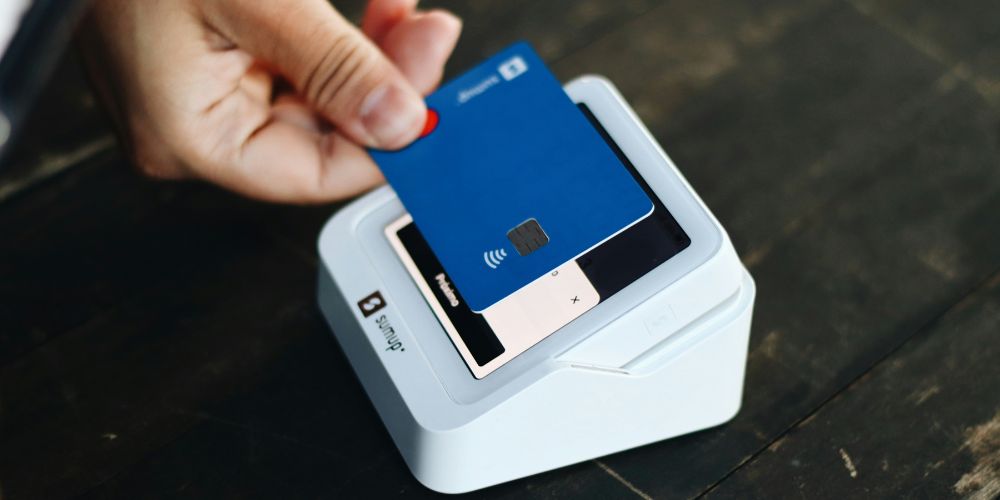Credit card processing fees are charges that businesses incur when customers use credit cards for payments. These fees are a necessary part of accepting credit card payments, but they can be complex and sometimes confusing. Credit card processing fees include various charges such as interchange fees, assessment fees, and payment processor fees. Each of these fees is essential for completing a credit card transaction and ensuring that the payment goes through smoothly.
Understanding credit card processing fees is crucial for businesses because these fees can significantly impact profitability. For example, knowing the difference between credit card merchant fees and processing fees for credit cards helps businesses manage their expenses better. When businesses understand these fees, they can choose the best pricing model, negotiate better rates, and ultimately save money. This knowledge is especially important for small businesses where every penny counts, and reducing costs can lead to higher profits.
This article aims to provide a comprehensive guide to credit card processing fees. We will explain the different types of fees involved, such as interchange fees, assessment fees, and payment processor fees. We will also explore the various pricing models like flat fee credit card processing and interchange-plus pricing, and provide tips on how to reduce these fees. By the end of this article, you will have a clear understanding of how much are credit card processing fees, the factors that affect these fees, and strategies to minimize them for your business.
What are Credit Card Processing Fees?

Credit card processing fees are the costs businesses pay each time a customer uses a credit card for a purchase. These fees cover the services needed to complete credit card transactions. They include charges from banks, credit card companies, and payment processors.
The total fee is made up of several smaller fees, including interchange fees, assessment fees, and payment processor fees. When a customer swipes or enters their credit card information, these fees ensure the payment is processed correctly and securely.
Importance
Credit card processing fees play a crucial role in credit card transactions. They are charged to cover the costs of handling and processing these payments. Here’s why these fees are important:
- Covering Transaction Costs: When a credit card is used, multiple parties are involved in the transaction, including the merchant’s bank, the customer’s bank, and the credit card network. Each of these parties charges a fee for their part in the transaction. These fees include the processing fee for credit cards and the credit card service fee.
- Ensuring Security: Credit card companies and payment processors invest heavily in security measures to protect against fraud. Part of the credit card transaction fee helps fund these security measures.
- Operational Costs: Payment processors need to maintain their systems, provide customer support, and ensure transactions are processed quickly. The cc fee helps cover these operational costs.
Businesses need to understand these fees to manage their costs effectively. Knowing the different fees and how they are calculated can help businesses choose the right payment processor and pricing model. This knowledge can lead to lower costs and higher profitability. For instance, understanding credit card processing rates and fees can help a business decide whether a flat fee credit card processing or an interchange-plus pricing model is more cost-effective for their operations.
Types of Credit Card Processing Fees

Interchange Fees
Interchange fees are a type of credit card charges that the merchant’s bank pays to the cardholder’s bank. These fees are a significant part of the overall credit card processing costs. Issuing banks, such as those that provide Visa or Mastercard credit cards, charge these fees. They help cover the risks and costs associated with handling credit card transactions.
Examples
Interchange fees vary depending on the type of card and the transaction method. Here are a few examples:
- Visa Debit Card: For a standard Visa debit card transaction, the interchange fee might be 0.8% + $0.15 per transaction.
- Mastercard Credit Card: For a Mastercard credit card transaction, the fee might be 1.5% + $0.10.
- Rewards Cards: Credit cards that offer rewards, like cash back or points, often have higher interchange fees. For example, a Visa rewards credit card might have an interchange fee of 1.95% + $0.10 per transaction.
These fees are charged every time a credit card is used and are a core part of the credit card transaction cost.
Assessment Fees
Assessment fees are charges imposed by the credit card networks, such as Visa, Mastercard, Discover, and American Express. These fees help cover the costs of operating the payment network. Unlike interchange fees, which go to the cardholder’s bank, assessment fees are paid directly to the card network.
Examples
Each credit card network sets its own assessment fees:
- Visa: Visa’s assessment fee is around 0.14% per transaction.
- Mastercard: Mastercard charges about 0.13% per transaction.
- Discover: Discover’s assessment fee is typically 0.13% per transaction.
- American Express: American Express charges higher assessment fees, around 0.15% per transaction.
Breakdown
Assessment fees are calculated as a percentage of the transaction amount and are applied to every transaction. For instance, if a business processes a $100 sale using a Visa card, the assessment fee would be $0.14. These fees are relatively small but can add up quickly, especially for businesses with high transaction volumes.
Here’s how these fees work in practice:
- Transaction Amount: The total sale amount processed by the merchant.
- Percentage Fee: The set percentage that the card network charges for each transaction.
- Application: The fee is applied automatically to each transaction and is typically included in the overall processing fee billed to the merchant.
Understanding assessment fees is crucial for businesses as they contribute to the total credit card processing charges and impact overall costs.
Payment Processor Fees
Payment processor fees are charges from the companies that handle credit card transactions. These companies, such as PayPal, Square, and Stripe, facilitate the processing of payments between the merchant and the credit card networks. These fees cover the services provided by the payment processor, including transaction handling, security, and customer support.
Fee Types
- Transaction Fees: Charged per transaction. For example, PayPal charges 2.9% + $0.30 per transaction.
- Monthly Fees: Some processors charge a monthly fee for their services. For instance, certain plans from Stripe might include a monthly fee along with lower transaction fees.
- Flat Fees: Fixed charges per transaction, regardless of the amount. Square, for example, charges a flat rate of 2.6% + $0.10 for in-person transactions.
- Incidental Fees: These include various other charges such as chargeback fees, voice authorization fees, and address verification fees. For example, a chargeback fee from PayPal might be around $20 per incident.
Examples
- PayPal: Charges 2.9% + $0.30 per transaction. Monthly fees may apply depending on the plan.
- Square: Offers a flat rate of 2.6% + $0.10 for in-person transactions and 2.9% + $0.30 for online transactions.
- Stripe: Typically charges 2.9% + $0.30 per transaction, with options for customized plans based on volume and specific business needs.
Practical Application
When a customer uses a credit card to make a purchase, the payment processor facilitates the transaction. The payment processing fee is deducted from the sale amount before the funds are transferred to the merchant’s account. For example, if a customer pays $100 using a credit card, and the processor charges 2.9% + $0.30, the merchant receives $96.80 after the fees are deducted.
Understanding these fees helps businesses choose the right payment processor and pricing model, which can lead to significant savings and more efficient payment processing. By knowing the specifics of credit card processing rates and fees, businesses can better manage their expenses and improve their bottom line.
Detailed Breakdown of Incidental Fees

Address Verification Service (AVS) Fee
An Address Verification Service (AVS) fee is a charge that businesses incur when they use AVS to verify a customer’s billing address. This service is a common fraud prevention tool used primarily in credit card transactions. When a customer makes an online or card-not-present purchase, AVS helps ensure that the billing address provided matches the address on file with the credit card issuer.
Examples
AVS fees vary by payment processor but are generally low. For example, a typical AVS fee might range from $0.01 to $0.10 per transaction. Here are a few scenarios where AVS fees might apply:
- Online Purchases: When a customer buys something online and enters their billing address, AVS verifies the address to reduce the risk of fraud.
- Manually Keyed Transactions: If a merchant manually enters a credit card number for a phone order, AVS can verify the address to ensure it matches the cardholder’s information.
Using AVS helps reduce the risk of fraudulent transactions and chargebacks, which can save businesses money in the long run.
Voice Authorization Fee
A voice authorization fee is charged when a merchant needs to call the credit card issuer to authorize a transaction. This situation usually occurs when a transaction is flagged for potential fraud, and additional verification is required.
Examples
Voice authorization fees typically range from $0.75 to $1.50 per call, depending on the payment processor. Here are common scenarios where this fee might be applied:
- High-value Transactions: For unusually large purchases, the payment processor might require voice authorization to ensure the transaction is legitimate.
- Suspicious Activity: If a transaction appears suspicious or out of the ordinary, the payment processor might prompt the merchant to call for voice authorization.
These fees help ensure that transactions are secure and reduce the risk of fraud, but they can add up for businesses that frequently deal with high-risk transactions.
Retrieval Request Fee
A retrieval request fee is charged when a customer disputes a transaction and the credit card issuer requests a copy of the sales receipt or other transaction documentation from the merchant. This fee covers the cost of retrieving and providing this information.
Examples
Typical retrieval request fees range from $5 to $15 per request. Scenarios where this fee might be applied include:
- Customer Disputes: When a customer does not recognize a charge on their statement and requests more information.
- Documentation Requests: In cases where additional proof of a transaction is needed, such as for legal proceedings or audits.
Managing retrieval request fees involves maintaining accurate and easily accessible transaction records. This practice can help resolve disputes quickly and minimize the costs associated with these requests.
Chargeback Fee
A chargeback fee is imposed when a customer disputes a transaction and the credit card issuer reverses the payment, returning the funds to the customer. The merchant is then charged a fee for processing the chargeback.
Examples
Chargeback fees typically range from $20 to $50 per incident. Here are ways to manage and reduce these fees:
- Preventing Fraud: Implement robust security measures like AVS, CVV verification, and secure payment gateways to reduce the risk of fraudulent transactions.
- Clear Return Policies: Ensure that your return and refund policies are clearly communicated to customers to minimize misunderstandings that could lead to chargebacks.
- Accurate Descriptions: Provide clear and accurate product descriptions to avoid customer dissatisfaction that might result in a chargeback.
Understanding and managing chargeback fees is crucial for maintaining a healthy cash flow and minimizing losses. By taking proactive steps to prevent disputes, businesses can reduce the frequency and impact of chargebacks.
Types of Pricing Models

Flat-rate Pricing
Flat-rate pricing is a simple pricing model where the merchant pays a fixed percentage and sometimes a small fixed fee per transaction, regardless of the card type or transaction size. This model is straightforward, making it easy for businesses to predict their processing costs.
Pros and Cons
- Pros:
- Simplicity: Easy to understand and calculate.
- Predictability: Costs remain constant, making budgeting easier.
- No Surprises: Merchants don’t have to worry about varying fees based on card types or transaction methods.
- Cons:
- Higher Costs: Flat-rate fees can be higher compared to other models, especially for businesses with large volumes or high-value transactions.
- Not Tailored: Does not account for the lower costs associated with debit cards or lower-risk transactions.
Examples
- Square: Charges a flat rate of 2.6% + $0.10 for in-person transactions.
- PayPal: Charges 2.9% + $0.30 per transaction for online payments.
Interchange-plus Pricing
Interchange-plus pricing is a more detailed pricing model where merchants pay the actual interchange fee plus a fixed markup. The interchange fee is set by the card networks (Visa, Mastercard, etc.), while the markup is set by the payment processor.
Pros and Cons
- Pros:
- Transparency: Merchants see the exact interchange fees and the processor’s markup.
- Potential Savings: Lower costs for businesses with high transaction volumes or those that frequently use debit cards.
- Flexibility: More tailored to the specific needs of the business.
- Cons:
- Complexity: More complicated to understand and calculate compared to flat-rate pricing.
- Variable Costs: Monthly costs can vary, making budgeting a bit more challenging.
Examples
- Stripe: Typically charges 2.9% + $0.30, but offers customized interchange-plus pricing for large businesses.
- Helcim: Charges interchange + 0.30% + $0.08 for card-present transactions and interchange + 0.50% + $0.25 for online transactions.
Interchange-plus pricing benefits businesses that can negotiate lower markups and those that process a large number of transactions, helping them achieve the best credit card processing rates.
Tiered Pricing
Tiered pricing groups transactions into different categories or tiers, such as qualified, mid-qualified, and non-qualified. Each tier has a different fee, which can lead to higher costs for some transactions, especially those deemed higher risk.
Pros and Cons
- Pros:
- Simplified Billing: Appears simpler on the surface because of grouped rates.
- Flexible: Different rates for different transaction types.
- Cons:
- Lack of Transparency: Difficult to understand what fees apply to which transactions.
- Higher Costs: Often results in higher fees for many transactions, especially for small businesses (SMBs).
- Unpredictable: Costs can vary significantly from one transaction to another.
Examples
- Qualified Transactions: Typically include standard, swiped debit and non-reward credit cards. Fees might be around 1.7% + $0.10.
- Mid-Qualified Transactions: Include some reward cards or keyed-in transactions. Fees might be 2.5% + $0.15.
- Non-Qualified Transactions: Include high-reward cards and manually entered transactions without AVS. Fees could be as high as 3.5% + $0.30.
Tiered pricing is less favorable for SMBs because it can lead to unexpectedly high cc processing fees, especially for transactions that fall into the higher-cost tiers. This model can be confusing and often results in higher overall credit card merchant charges.
Factors Affecting Credit Card Processing Fees

Type of Card Used
Credit vs. Debit Cards
Credit card processing fees vary depending on whether the card used is a credit or debit card. Debit cards usually have lower fees because they pose less risk for fraud. For example, the processing fee for credit cards might be 2% + $0.10 per transaction, while debit cards might only incur a fee of 1% + $0.05. This difference is due to the security measures associated with debit cards, such as PIN verification.
Impact of Rewards Cards
Rewards cards, like those offering cash back or travel points, typically have higher fees. This is because card issuers pass on the cost of the rewards to the merchants. For instance, using a Visa rewards card might incur a fee of 2.5% + $0.10, compared to a standard Visa credit card at 1.9% + $0.10. These higher fees help cover the rewards that cardholders earn, making rewards cards more expensive for merchants.
Transaction Method
In-person vs. Online
The method of transaction also affects the credit card processing costs. In-person transactions generally have lower fees due to lower fraud risk. For example, in-person transactions might have a fee of 2% + $0.10, while online transactions might cost 2.9% + $0.30. Online transactions are considered riskier because the card is not physically present, increasing the chance of fraud.
Mobile Payments
Mobile payments, such as using a smartphone app, often have specific fees. These can be similar to online transaction fees because they also carry a higher risk of fraud. For instance, using a mobile payment service might incur a fee of 2.7% + $0.15. These fees are crucial for covering the additional security measures required to process mobile payments.
Business Type and Industry
Merchant Category Codes (MCCs)
Merchant Category Codes (MCCs) classify businesses by the type of goods or services they offer, impacting credit card processing rates and fees. For example, a restaurant (MCC 5812) might have different fees compared to an online retailer (MCC 5942). This classification helps determine the level of risk and, consequently, the fees charged. Restaurants might have a fee of 1.8% + $0.10, while online retailers might face higher fees of 2.5% + $0.20 due to higher fraud risks.
High-risk Industries
Certain industries are considered high-risk and therefore incur higher credit card merchant fees. Examples include travel agencies, online gambling sites, and adult entertainment. These industries face higher fees because they have a higher incidence of fraud and chargebacks. For instance, a high-risk industry might incur a fee of 3.5% + $0.30 per transaction, compared to a lower-risk business like a grocery store at 1.7% + $0.05. Understanding how industry type affects fees can help businesses better manage their costs.
By recognizing these factors, businesses can better navigate the landscape of credit card processing fees and find ways to reduce their expenses.
How to Calculate Your Credit Card Processing Fees?

Step-by-step Guide
Calculating your credit card processing fees involves understanding and summing up different types of fees. Here’s a step-by-step guide:
- Identify the Transaction Type: Determine if the transaction is in-person, online, or mobile. Each type has different fees.
- Know Your Interchange Fees: These are fees charged by the card issuer and vary based on the card type (credit, debit, rewards) and transaction type. For example, an interchange fee might be 1.8% + $0.10 for a Visa debit card.
- Include Assessment Fees: These fees are set by the card networks (Visa, Mastercard, etc.). For example, Visa might charge an assessment fee of 0.14% per transaction.
- Add Payment Processor Fees: These are fees from the payment processor (e.g., PayPal, Square). They might include a percentage of the transaction and a fixed fee, like 2.9% + $0.30 for an online payment.
- Calculate Any Incidental Fees: Include any additional charges like AVS fees, chargeback fees, or monthly service fees. For instance, an AVS fee might be $0.05 per transaction.
- Sum Up the Fees: Add all the above fees to get the total cost for processing the transaction.
Example Calculations
Let’s look at different transaction scenarios to see how these fees add up:
In-person Transaction Example
- Transaction Amount: $100
- Interchange Fee: 1.5% + $0.10 (Visa debit)
- Assessment Fee: 0.14%
- Payment Processor Fee: 2.6% + $0.10 (Square)
Calculation:
- Interchange Fee: $100 x 1.5% + $0.10 = $1.60
- Assessment Fee: $100 x 0.14% = $0.14
- Payment Processor Fee: $100 x 2.6% + $0.10 = $2.70
- Total Fees: $1.60 + $0.14 + $2.70 = $4.44
Online Transaction Example
- Transaction Amount: $50
- Interchange Fee: 1.9% + $0.10 (Mastercard rewards)
- Assessment Fee: 0.13%
- Payment Processor Fee: 2.9% + $0.30 (PayPal)
Calculation:
- Interchange Fee: $50 x 1.9% + $0.10 = $1.05
- Assessment Fee: $50 x 0.13% = $0.07
- Payment Processor Fee: $50 x 2.9% + $0.30 = $1.75
- Total Fees: $1.05 + $0.07 + $1.75 = $2.87
High-value Transaction Example
- Transaction Amount: $1,000
- Interchange Fee: 2% + $0.10 (American Express)
- Assessment Fee: 0.15%
- Payment Processor Fee: 2.5% + $0.10 (Stripe)
Calculation:
- Interchange Fee: $1,000 x 2% + $0.10 = $20.10
- Assessment Fee: $1,000 x 0.15% = $1.50
- Payment Processor Fee: $1,000 x 2.5% + $0.10 = $25.10
- Total Fees: $20.10 + $1.50 + $25.10 = $46.70
By following these steps, you can accurately calculate the credit card processing fees for different types of transactions. Understanding these costs helps you manage your expenses better and choose the right payment processing solutions for your business.
Reducing Credit Card Processing Fees

Negotiating with Processors
One of the most effective ways to reduce your credit card processing fees is to negotiate with your payment processor. Here are some tips and strategies:
- Shop Around: Don’t settle for the first offer you get. Compare rates from multiple processors to find the best deal. Look for cheap credit card processing options that meet your needs.
- Leverage Your Volume: If your business processes a high volume of transactions, use this as a bargaining chip. Processors are more likely to offer lower rates to high-volume businesses.
- Request Interchange-plus Pricing: This model can be more transparent and potentially cheaper than flat-rate or tiered pricing. Ask your processor to switch to this model if you’re currently on a different plan.
- Ask About Discounts: Inquire about discounts for specific transaction types or for using certain types of credit cards, like debit cards with lower cc fees.
By negotiating, you can often secure better credit card processing rates and fees that align with your business needs.
Choosing the Right Pricing Model
Selecting the right pricing model is crucial to minimizing your credit card processing costs. Here’s how to choose:
- Flat-rate Pricing: Best for small businesses with low transaction volumes and less variability in transaction types. It’s simple and predictable, but might not be the cheapest option.
- Interchange-plus Pricing: Suitable for businesses with higher transaction volumes and a mix of transaction types. This model can offer transparency and potential savings.
- Tiered Pricing: Generally not recommended due to its complexity and potential for higher costs. However, it can be considered if your processor offers a favorable tier structure for your business.
Evaluate your transaction volume and types to choose the model that provides the lowest credit card processing fees for small business.
Implementing Best Practices
Adopting best practices can help reduce your credit card merchant charges:
- Encourage Debit Card Use: Debit cards usually have lower fees than credit cards. Encourage customers to use them when possible.
- Reduce Chargebacks: Implement strong fraud prevention measures, such as Address Verification Service (AVS) and requiring CVV codes. Clear return policies and excellent customer service can also help minimize chargebacks and associated fees.
- Batch Transactions: Process transactions in batches to reduce the number of individual transactions and potentially lower your overall payment processing fee.
These steps can help lower your overall merchant service fees.
Utilizing Technology
Leveraging technology can streamline your payment processing and reduce costs:
- Use Payment Gateways: Choose a payment gateway that offers competitive rates and reliable service. Some gateways offer tools to reduce fraud, which can help lower your fees for credit card processing.
- Automate Processes: Use automated systems for invoicing and payment collection to reduce manual errors and save on labor costs. Automated systems can also help with batch processing and detailed reporting.
- Mobile Payment Solutions: Consider mobile payment solutions that offer lower fees for mobile transactions. These can be especially useful for businesses that operate on-the-go.
By using the right tools and services, you can optimize your payment processing and reduce your overall credit card processing fees.
By following these strategies, you can effectively reduce your credit card processing charges and improve your bottom line. Negotiating better rates, choosing the right pricing model, implementing best practices, and utilizing technology are all key steps in managing and minimizing your credit card fees for business.
Conclusion
Understanding credit card processing fees is essential for any business that accepts credit card payments. These fees include interchange fees, assessment fees, and payment processor fees. Different types of cards and transaction methods can affect these fees, with rewards cards and online transactions typically costing more. Choosing the right pricing model, whether it’s flat-rate, interchange-plus, or tiered, can significantly impact overall costs. Additionally, implementing best practices and utilizing technology can help lower these fees.
Managing credit card processing fees effectively is crucial for business success. By understanding the various fees and factors that influence them, businesses can make informed decisions to minimize costs. This involves negotiating with processors, selecting the appropriate pricing model, and adopting best practices to reduce fraud and chargebacks. Staying informed and proactive about credit card processing fees can lead to significant savings and improved profitability, ensuring a healthier bottom line for your business.
FAQs
What are the average credit card processing fees?
The average credit card processing fees range from 1.5% to 3.5% per transaction. These fees include interchange fees, assessment fees, and payment processor fees. For instance, a $100 transaction could cost a business between $1.50 and $3.50, depending on the type of card used and the payment processor’s rates.
How can businesses lower their credit card processing fees?
Businesses can lower their credit card processing fees by negotiating with processors for better rates, choosing the most suitable pricing model, such as interchange-plus, and encouraging the use of debit cards, which typically have lower fees. Implementing strong fraud prevention measures like AVS and requiring CVV codes can also help reduce fees by minimizing chargebacks.
Why do some businesses avoid accepting American Express?
Many businesses avoid accepting American Express because of the higher amex merchant fees compared to other card networks. American Express often charges higher transaction fees, sometimes as much as 3.5%, compared to the 2% typically charged by Visa or Mastercard. These higher fees can significantly impact a business’s profit margins, especially for small businesses.
Author

Emily brings a wealth of financial experience and analytical skills to the table. She specializes in helping businesses optimize their merchant services costs and identify opportunities for improvement. When she's not working, Emily enjoys yoga, reading, and volunteering for animal shelters.
View all posts





